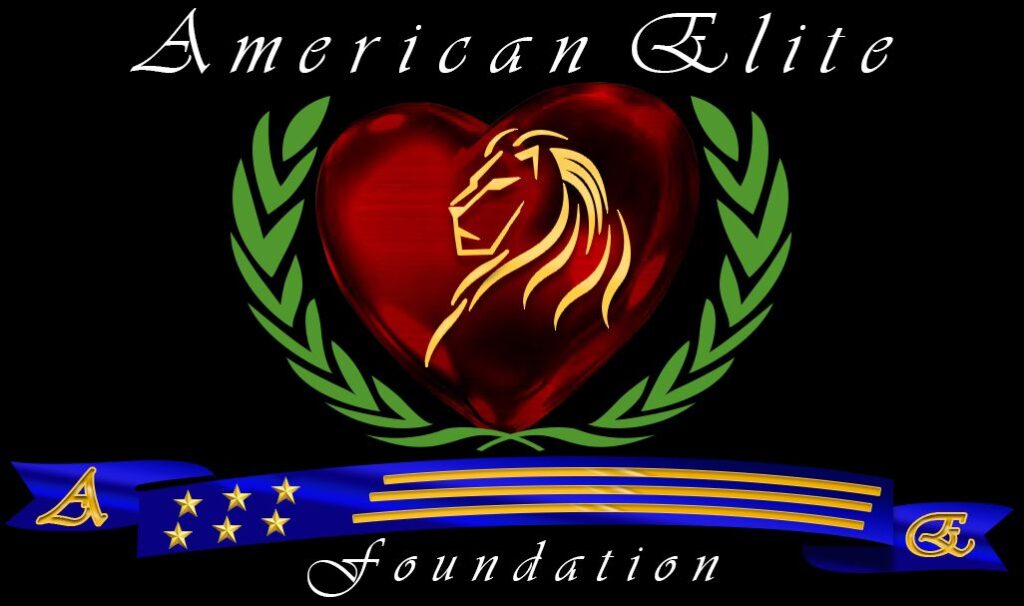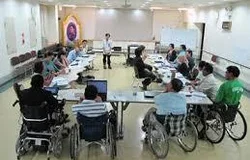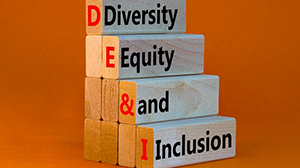Daniel Davidson, MD, MBA, DBA, PHD
Introduction:
In the field of social welfare, nonprofits are essential to helping those who have experienced hardship, especially those who are reintegrating and recovering from their ordeals. These groups work hard to encourage resilience, restore dignity, and make it easier for people to successfully reintegrate back into society through compassionate assistance and hard work. This article highlights the life-changing experiences of those who have benefited from charity endeavors as it examines the significant influence of such efforts on rehabilitation and reintegration.
Understanding Rehabilitation and Reintegration:
Recognizing the procedures and initiatives designed to assist people who have encountered a variety of difficulties—such as homelessness, substance misuse, incarceration, or mental health concerns—in overcoming barriers and effectively reintegrating into society is essential to understanding rehabilitation and reintegration.
Rehabilitation:
This part aims to deal with the underlying problems and elements that might have influenced a person’s struggles. It entails offering assistance, materials, and interventions to encourage healing, personal development, and constructive transformation. Among other services, rehabilitation may involve drug misuse treatment, skill-building initiatives, counseling, and therapy. The intention is to provide people the tools they need to overcome obstacles, adopt better coping strategies and habits, and strive toward leading happy and fruitful lives.
Reintegration:
The process of reintegrating people into society starts once they have completed rehabilitation and are headed toward recovery. In order to address practical demands and social impediments, reintegration entails supporting a seamless transition back into society by providing the required resources and support. This can entail help with reestablishing social relationships, obtaining job or educational prospects, finding permanent housing, and overcoming bureaucratic or legal obstacles. The goal is to guarantee that people receive the resources and assistance need to effectively reintegrate into their communities and lead fulfilling lives as valuable contributors to society.
The Role of Charitable Organizations:
Charitable organizations have a critical and complex role in rehabilitation and reintegration. These organizations provide a wide range of services that are geared to address the unique needs of those who have encountered adversity, acting as pillars of support for them. In this perspective, philanthropic organizations play the following important roles:
Offering Supportive Services:
A range of supportive services, such as advocacy, legal aid, housing support, skill development, counseling, therapy, and job assistance, are provided by charitable organizations to people in need. The intricate difficulties that people could run into while reintegrating and receiving rehabilitation are addressed by these programs.
Resolving Fundamental Causes:
Nonprofit organizations endeavor to tackle the fundamental reasons behind hardship, including substance abuse, psychological disorders, financial difficulties, homelessness, and insufficient access to learning or employment prospects. They hope to enable people to get over obstacles and produce long-lasting, beneficial results by addressing these underlying issues.
Promoting Empowerment and Self-Sufficiency:
Charitable organizations enable people to take charge of their lives, develop resilience, and become self-sufficient through their programs and initiatives. They offer the equipment, materials, and assistance required for people to acquire critical life skills, go after school and career possibilities, and successfully overcome obstacles.
Creating Supportive Communities and Networks:
Through charitable organizations, people can connect with professionals, volunteers, mentors, and peers who have been through similar experiences and can offer support, encouragement, and guidance. These networks are essential for encouraging social inclusion, lowering loneliness, and building a sense of belonging.
Promoting Systemic Change:
Charitable organizations work to address the underlying injustices and inequalities that impede efforts at rehabilitation and reintegration and contribute to adversity. In addition to offering direct services, they also promote systemic change and policy reforms. They seek to increase public awareness, sway policymakers, and advance laws that put social justice, equity, and resource access first.
Impact Stories:
Numerous people have found hope, healing, and a second chance at life because to the generous efforts of nonprofit groups. Think about the following tales:
John’s Road to Recovery:
A local nonprofit organization’s recovery program provided John with comfort and support following his stint in jail for substance misuse. John acquired the self-assurance and abilities required to find steady work and start over through therapy, skill development, and continuing mentoring.
Maria’s Road to Stability:
Needing help due to her financial situation and homelessness, Maria went to a nonprofit. Through the assistance of the group, Maria was able to get temporary housing, financial literacy training, and employment, ultimately leading to housing stability and her return to independence.
David’s Successful Reintegration:
David encountered several obstacles to reintegration after his release from prison, such as a dearth of housing and employment opportunities. David was provided with job preparation training, affordable housing help, and legal aid by way of a philanthropic organization’s reintegration program. David is doing well at work these days and is getting involved in his neighborhood.
Family Reunification Programs:
After a period of separation or estrangement, individuals can repair their connections with their families with the use of counseling, mediation, and support services offered by charitable organizations. A person’s recovery and successful reintegration into society can be greatly aided by strengthening family ties.
Peer Support Networks:
Through peer support networks or group therapy sessions, charitable projects frequently enable people to interact with others who have gone through comparable situations. These networks offer a feeling of companionship, empathy, and support, creating a nurturing communal atmosphere that is necessary for recovery and development.
Trauma-Informed Care:
Understanding the influence of prior trauma on people’s behavior and overall well-being, charitable organizations place a high priority on trauma-informed care. These institutions offer safe, supportive environments that promote healing and rehabilitation via trauma-informed counseling, therapy, and support services.
Education and Lifelong Learning:
A lot of philanthropic endeavors highlight the value of education and lifelong learning as routes to self-improvement and empowerment. Charity provides access to vocational training, scholarship programs, and educational opportunities that enable people to pursue fulfilling jobs and make valuable contributions to society.
Advocacy and Policy change:
In order to address systemic problems and obstacles that impede rehabilitation and reintegration, charitable organizations frequently take part in advocacy campaigns and policy change projects. These groups work to establish a more just and encouraging environment for those who are trying to start over by pushing for changes in laws, regulations, and social norms.
Cultural and Spiritual Support:
Charitable projects may include cultural competence and spiritual care in their programs, acknowledging the variety of cultural and spiritual requirements that people may have. These organizations provide holistic care that recognizes the interdependence of mind, body, and spirit in the process of rehabilitation and reintegration, while also acknowledging and respecting individuals’ cultural beliefs and spiritual practices.
Long-Term Support and Aftercare:
As people move past the first stages of recovery, charitable organizations provide them with long-term support and aftercare services. To guarantee sustained development, stability, and success in the process of reintegration, this continuing assistance may take the form of alumni programs, mentorship, and follow-up services.
Community Outreach and Engagement:
In order to dispel stigma, increase understanding, and increase awareness of issues pertaining to rehabilitation and reintegration, charitable groups actively engage with the community. These groups aim to foster empathy, compassion, and support for those who are rebuilding their lives through educational workshops, public events, and outreach programs.
Peer-led initiatives:
A few nonprofits take a peer-led approach to their work, enlisting people who have successfully completed rehabilitation and reintegration programs to mentor or lead peer support groups for others going through comparable situations. When it comes to offering empathy, comprehension, and helpful advice based on common experiences, peer support can be highly successful.
Crisis Intervention and Emergency Assistance:
People in need of support right away can get crisis intervention and emergency assistance services from charitable organizations. This can entail offering short-term housing, food aid in an emergency, access to healthcare, and other necessities to meet people’s immediate needs and keep them stable in stressful circumstances.
Restorative Justice Programs:
Some nonprofit groups run restorative justice programs in partnership with the legal system and community partners. These programs are designed to help those who have engaged in criminal activity feel more accountable, healed, and reconciled. The aforementioned initiatives prioritize communication, making amends, and engaging the community as substitutes for customary disciplinary actions.
Skills Development and Cognitive Behavioral Therapy:
Evidence-based strategies like CBT and skills development programs are frequently included in charitable endeavors to address behavioral patterns, cognitive distortions, and social skills deficiencies that may impede recovery and reintegration. Through these interventions, people can learn coping mechanisms, effective problem-solving techniques, and constructive thought patterns that will aid in their successful reintegration.
Intersectional Approaches to Support:
Organizations dedicated to charitable giving acknowledge that people in need of assistance with rehabilitation and reintegration have several identities and experiences that cross, encompassing aspects like gender, sexual orientation, disability, and race. These organizations serve marginalized groups by addressing systemic inequalities, discrimination, and access barriers through the use of intersectional approaches to support.
Evidence-Based Evaluation and Continuous Improvement:
In order to evaluate the success of their programs and interventions, charitable initiatives place a high priority on evidence-based evaluation and continuous improvement. In order to maximize results and better meet the needs of the people under their care, these organizations employ stringent monitoring, assessment, and feedback procedures to pinpoint strengths, shortcomings, and areas for improvement.
Partnerships and Collaboration:
To maximize resources, knowledge, and networks in support of rehabilitation and reintegration initiatives, charitable organizations ,partner with government agencies, community-based organizations, healthcare providers, educational institutions, and other stakeholders. These organizations optimize impact, reach a wider audience, and develop synergies to successfully handle complex societal concerns by fostering collaboration and partnerships.
Conclusion:
Nonprofit initiatives aimed at rehabilitation and reintegration serve as a ray of hope for those who are struggling and offer them the necessary resources, support, and avenues for change. Charitable organizations tackle the diverse requirements of people reintegrating and recovering through all-encompassing and holistic methods, enabling them to get beyond obstacles, restore their self-worth, and start afresh.
Charitable endeavors provide a range of support services catered to individual needs, from mental health counseling and drug abuse treatment to job training, housing help, and community reintegration programs. These programs embrace a person-centered approach that respects diversity, encourages empathy, and advances healing, acknowledging the inherent dignity and worth of every human.







